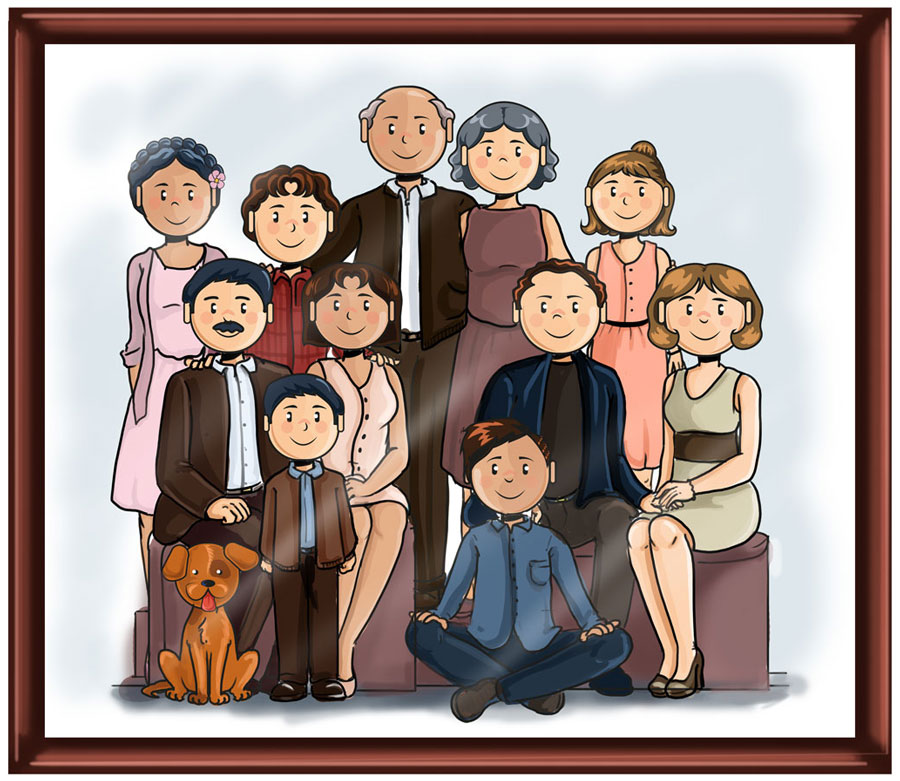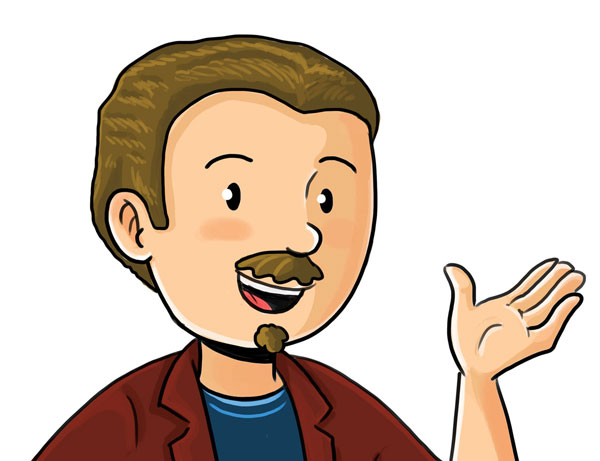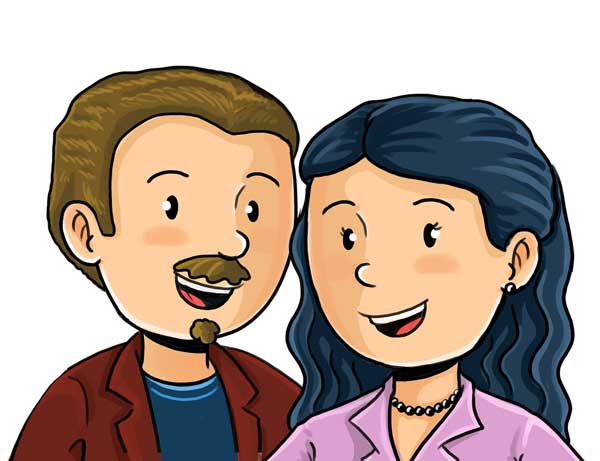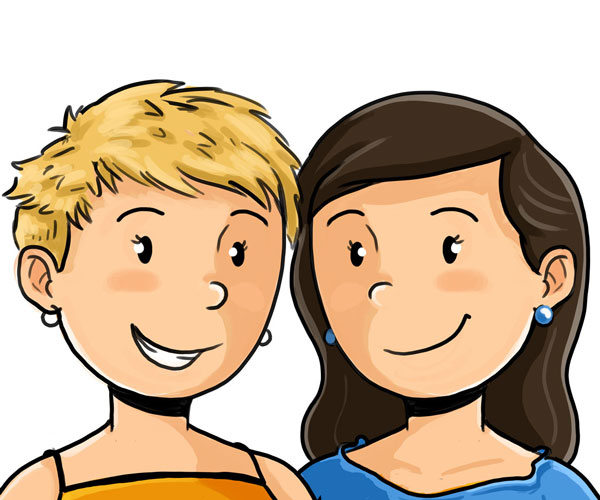Who is the most important person in your life? Maybe your mom or dad… maybe your brother or sister… I think that in our family are the most important people we have in our lives.
Let’s meet Diego and his family.
Hi buddy! I’m Diego and I‘m from Puerto Rico. There are 10 members in my family, but we don’t live all together, I live in a beautiful house in San Juan with my parents and sisters, I have a pet, too. Would you like to meet my family? Look at my family tree below.
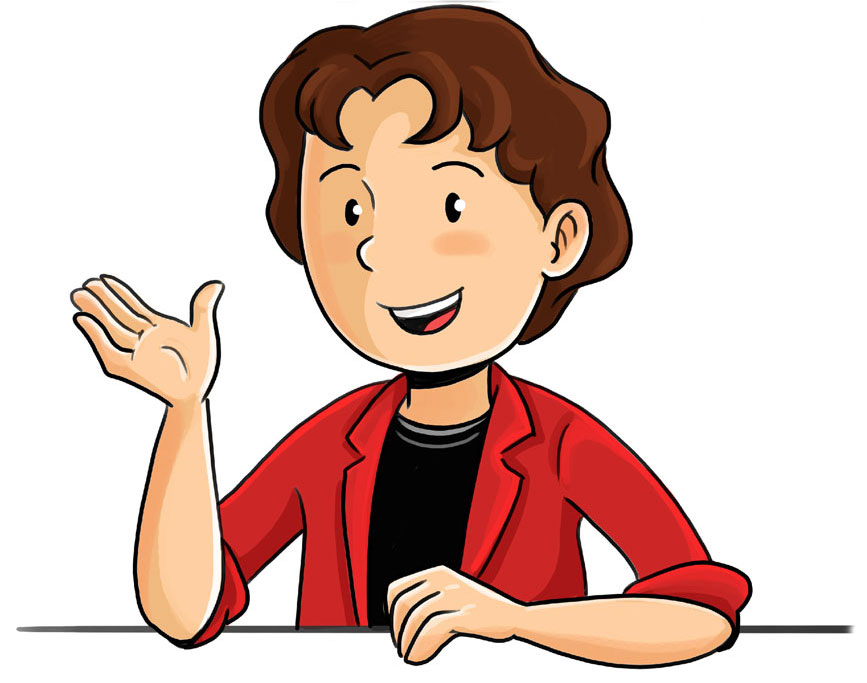
TIPS
- When you listen to some information we recommend that you listen to the audio for the first time to have a general idea about the topic and try to make some predictions.
- Then, play it for a second time to get more information or verify your predictions.
- It is also good to read first the exercise, questions or items to have an idea about what the audio is about.
- Don’t worry if you don’t understand every single word. Practice makes perfect!
Es Listen to the following audio to know more about Diego’s family. Click on the photo to read what he says.
Escucha el siguiente audio para saber más sobre la familia de Diego. Da clic en la foto para leer lo que dice.
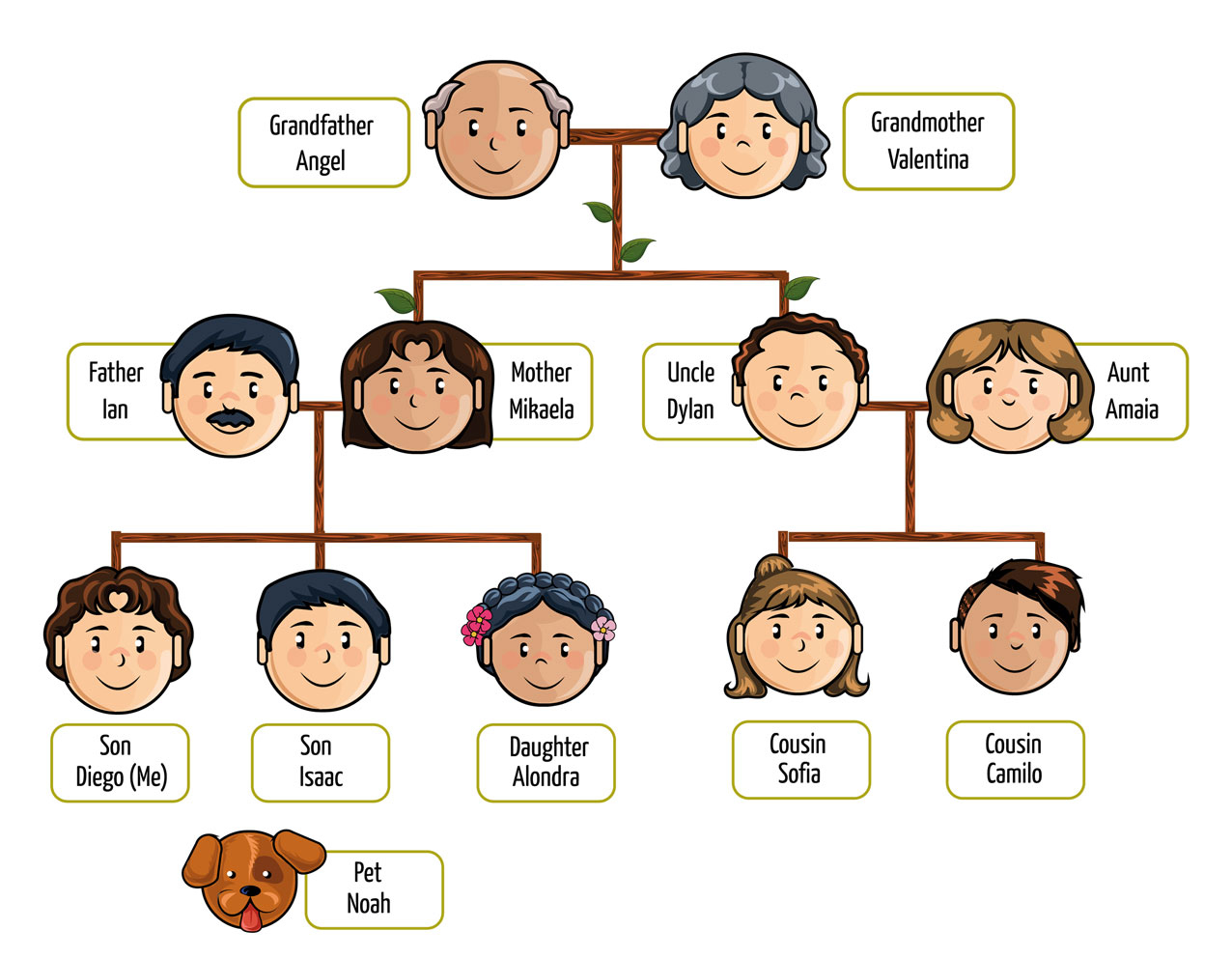
To know the family relationships among Diego and them, look at his family tree.
In the English language, there is a particular form to express family relationships or belongings.
For example:
Diego’s father is Ian. His father is Ian.
Mikaela’s mother is Valentina. Her mother is Valentina.
Diego’s siblings are Isaac and Alondra. His siblings are Isaac and Alondra.
Diego’s pet is Noah. His pet is Noah.
The dog’s name is Noah. Its name is Noah.
Isaac and Alondra’s brother is Diego. Their brother is Diego.
In the previous examples we add ‘s after the proper name or after the noun whose relationship is expressed. This form is known as the possessive case and it is commonly used in English. In the Spanish language we don’t have that form we say instead:
El papá de Alondra es Ian. Alondra’s dad is Ian.
Dad’s Alondra is Ian.
El primo de Diego es Camilo. Diego’s cousin is Camilo.
Cousin’s Diego is Camilo.
Es Click on each card to listen to their pronunciation.
Da clic en para escuchar la pronunciación.
Woman
Man
There are occasions in which we use a different word to express that we refer to both genders (woman and man).
To ask about the family relationship that one person has with other people we use this question:
Who is Natasha?
It is also possible to use the short form of is:
Who’s Natasha? (this is NOT the possessive case, Who’s = Who is).
Who is means in Spanish:
¿Quién es Natasha?



